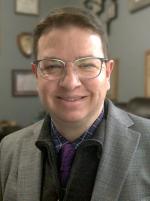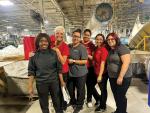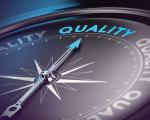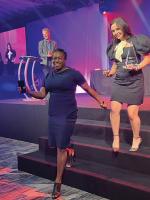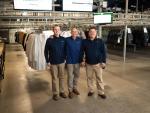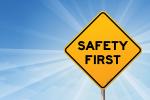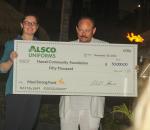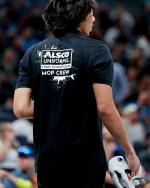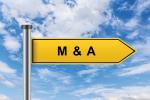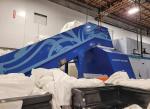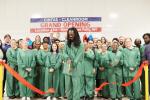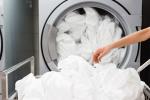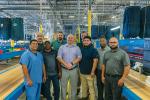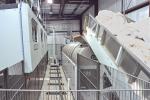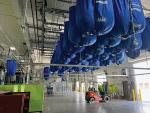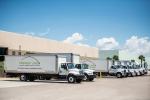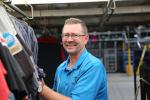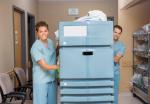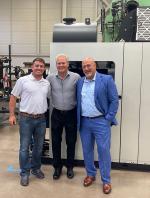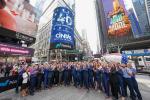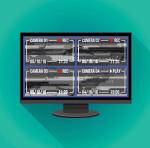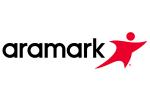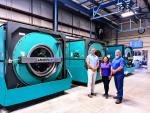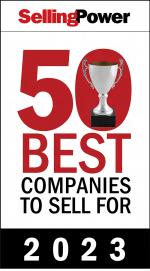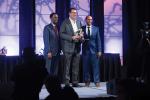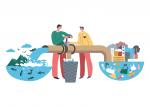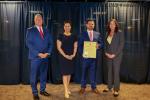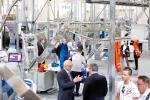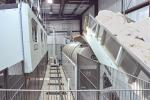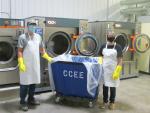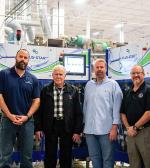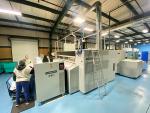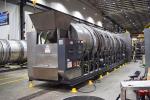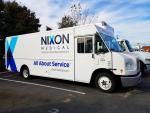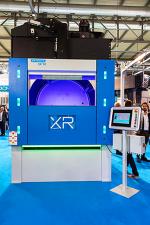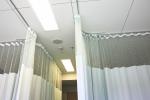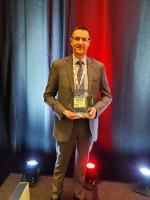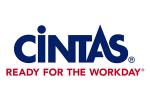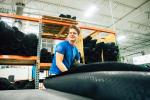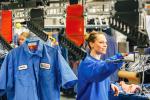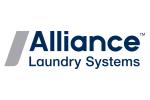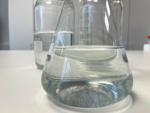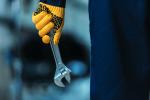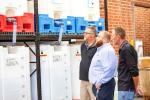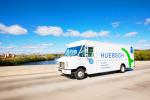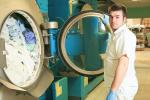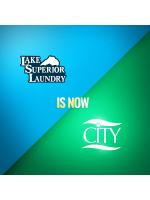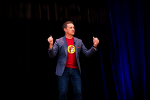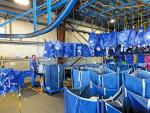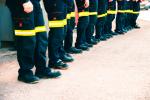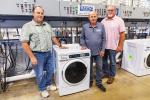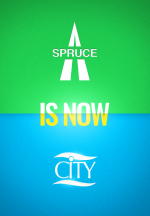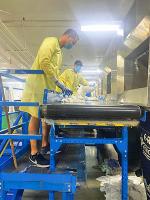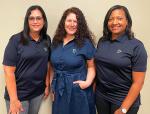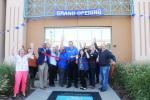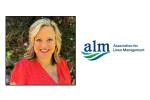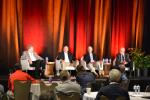CHICAGO — In 1952, Rex Wildman took a risk.
After flying supplies in China during World War II, the veteran came home and started a career with Standard Oil.
Only a few years later, Wildman decided he wanted to be his own boss, to set out on his own.
He bought a dry-cleaning business in Amish country in Indiana, which was a major risk since he had no knowledge about dry cleaning, and he had to borrow and scrape together the money for the purchase.
The risk paid off, and what is known today as Wildman Business Group in Warsaw, Indiana, was created.
Wildman has been built on risk and bold, aggressive policies, from that first dry-cleaning business to venturing into the industrial uniform industry and beyond.
Besides uniform rental, the business offers mats, cleaning services, restroom solutions and first-aid services. It even has a paper division and a sports licensed consumer goods company.
Today, Rex’s grandson, Josh Wildman, is CEO of the third-generation, regional independent family business, and continues the family tradition of risk and aggressive growth.
American Laundry News spoke with Josh to learn more about the company, the people and how it manages its diverse portfolio of businesses.
Since the beginning, Wildman seems to have been aggressive in its business strategies. Why is that and how has that aggressive quality continued throughout the years?
My dad had a vision in 1995. He had a five-year goal to double the size of the company by the year 2000. It was called Vision 2000, and at that time, I think they were a little over $2 million in revenue and he accomplished that through one very risky, large acquisition just before the year 2000.
After that, my dad made a big decision, a wise decision to realize he wasn’t the guy to take the company forward to the next phase. And so, he hired an outside CEO, Steve Bryant.
Steve was our CEO for 12 years. He had a 40-year career in the laundry business. My dad hired him on a five-year deal to double the size of the company again, professionalize it and train the next generation of leaders.
At that time, I was 22 and didn’t want to be in the laundry business, and live in Warsaw, Indiana, but it got deep in my veins now.
Steve was just a great mentor. I mean business-wise. He was a friend, he’s godfather to my two sons, and Steve really taught us what it meant to build a business strategy around a vision and then create a strategic plan and go win.
Our motto back then was “expect you in,” and we just got out after it and went and worked really hard and organically grew the company. Next year, we will have grown the company 25x in 25 years.
Our family is Christian. While you certainly don’t need to be a Christian to work at our company, we do run the company based on Biblical values and we really give a lot.
One of our key differentiators is we give 20% of our profits away every year, and we give a lot of credit; it’s not we’re that good, it’s that God has blessed us with a lot of great people and good fortune.
It’s pretty rare to be a third- or fourth-generation business. We want to be stewards over this, so in addition to growing the business organically, we feel it’s important to have the right support and structure in place. Seven years ago we put a fiduciary board in place as well as a family counselor.
The statistics are that 3% make it, and so we put the right governance systems in place as a family and as a business to ensure we have good accountability and governance. By doing that, we realized the laundry industry was bracing for “The Silver Tsunami” with all these baby boomer independents approaching retirement age and many of them don’t have a great succession plan.
While the nationals are obviously very active in acquisitions, independents traditionally haven’t been, and so we saw a niche where we could help independents stay independent and really continue that family business legacy.
And so, we set out to be a regional independent option. The first in around three decades, these conversations led us to create a really nice playbook.
We just completed our eighth acquisition in the last five years. Our largest acquisition was in 2023 with WM Uniform in Holland, Michigan. So, that playbook and strategy has really played well.
In addition, we are very much a sales and marketing company with a diversified portfolio. Our revenue is 30% first aid and safety and disinfecting services, 5% apparel and promotional products, and about 65% traditional textile rental/mats. Our very diversified service and product mix is similar to Cintas. In fact, we’re more similar to Cintas than most of the other nationals and definitely all of the independents as far as what we can offer the customer.
We’ve been very aggressive. We have a consumer products business that’s licensed with the all of the major teams. We might have over-diversified at one point, but it’s been a beautiful sister company. We’ve learned a lot, and it’s been a lot of fun.
We’ve been blessed to grow the business very aggressively specifically over the last 20 years.
Have the laundries that you’ve acquired remained their own brands, independent in that way, or part of the Wildman umbrella?
Only WM did we leave as a standalone brand, recognizing that they had a 60-year legacy in that market. We were there in part of the market, but they were more well-known in that region. Again, we look at it and ask what’s best for the customer, what’s best for the team? Truly, when we say, “When we partner, we want to add more value than anything that we would ever take.” That strategy has worked really well.
The other seven acquisitions we folded into our brand, but we’ve had very good success in retaining team members and much better retention of the customers than would even be expected.
With the companies that you’ve acquired, talk about the region that you’re covering, about the equipment, the processes that you use, the types of goods that you process. Tell the readers a little bit about your laundry process.
Our target markets are the Midwest, South, Southeast, those areas, but specifically, though, that whole Midwest area.
We have Winona Services and now Provision Medical Products; we work with other independent laundries as a distributor of first-aid products and towel and tissue products.
Within that, we have a broad network of customers, and we just have a lot of really solid relationships. Even though it’s a $30 billion industry, it’s kind of a small industry. Everybody seems to know everybody, for the most part.
Just knowing each other we get into conversations. We try to make it known that while we respect all of our competitors if they’re looking to sell we at least want to be part of the conversation. This approach has served us well.
A lot of the owners want to see that family heritage for their team members and customers continue. We look at it as we want to help independents stay independent.
Check back next Thursday for the conclusion about Wildman’s customers and future.
Have a question or comment? E-mail our editor Matt Poe at [email protected].
